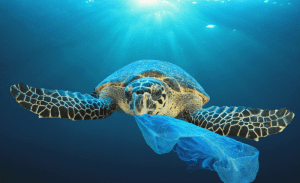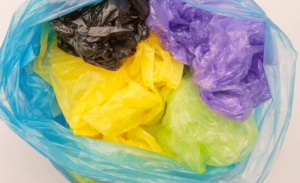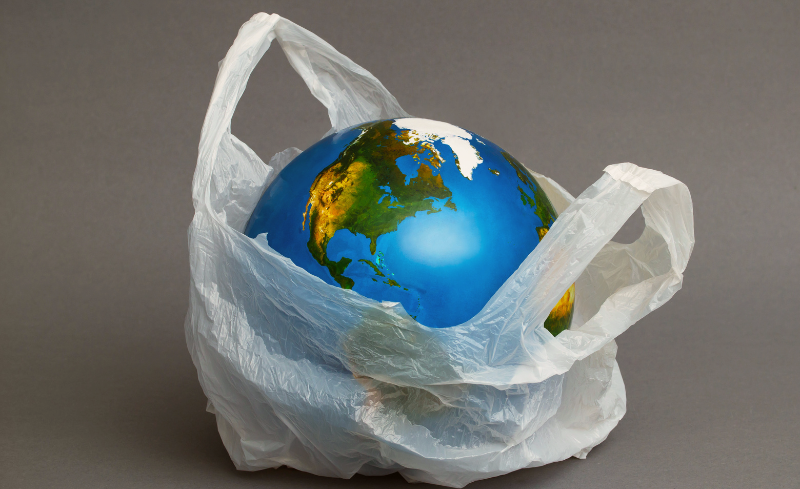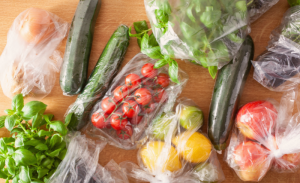Plastic is a waste that is very present in our daily lives, with a great environmental impact. This impact can be greatly reduced if it is recycled properly. With the right technology and innovation we can extend the life of plastic, transforming it and reducing the volume of plastic waste that is discarded unnecessarily and that is harmful to the environment. By converting plastic into new products we manage to promote the Zero Waste philosophy and take care of the planet. At TMA we are committed to the integrated management of waste and the Circular Economy and we focus on recovering, reusing and recycling waste, including plastic, to create new products.
THE USE OF PLASTIC BAGS
Plastic bags are present in our daily lives:
“Approximately one million plastic bags are bought every minute around the world.”
“The vast majority of bags are used only once before being thrown away.”
“If no action is taken, by 2050 there will be more plastic than fish in the ocean, in terms of weight.”
On average, a plastic bag is used for only 12 minutes, but it can take more than 300 years to fully decompose. Given this reality, every July 3rd is celebrated the International Plastic Bag Free Day with the aim of raising awareness about the negative environmental impact of the massive use of disposable plastic bags.
We must become aware and adopt new habits and sustainable alternatives, such as reusable cloth bags, baskets, and bags made of other biodegradable or recyclable materials
THE ENVIRONMENTAL IMPACT OF PLASTIC BAGS
Plastic bags contribute significantly to ocean pollution, where they fragment into microplastics that affect marine life and, in the long term, human health. Reducing the use of plastic bags is crucial to mitigate environmental damage and move towards a more circular and sustainable economy.
In 2025, it is expected that for every 3 tons of fish swimming in the oceans there will be 1 ton of plastic. If the data remains, the oceans would contain more plastic than fish in 2050 according to UN data.
A plastic bag can take between 10 and 20 years to partially decompose in the sea, but this process is neither complete nor beneficial. Instead of completely biodegrading, plastic bags fragment into microplastics, small particles that are extremely difficult to remove from the environment and that persist for hundreds of years.
 Therefore, the environmental impact of plastic bags is as follows:
Therefore, the environmental impact of plastic bags is as follows:
- Ocean pollution: plastic bags are often ingested by turtles, birds and fish, mistaken for food.
- Microplastics: the degradation of plastic bags contributes to the proliferation of microplastics, which contaminate water and the food chain. These microplastics affect marine life and can end up on our plates.
- CO2 emissions: the production of plastic bags involves a high consumption of fossil resources and the emission of greenhouse gases because each stage of the life cycle of a plastic bag contributes to pollution and climate change.
At TMA we want to minimise the negative environmental impact that waste causes in our seas and oceans. We contribute to the reduction and treatment of waste that is dumped into the sea and that damages marine flora and fauna from our facilities located in the Port of Barcelona, where we analyse and treat MARPOL (Marine Pollution) waste and manage waste and industrial water, to ensure that the water returned to the sea is 100% clean.
SUSTAINABLE ALTERNATIVES TO PLASTIC BAGS
In light of this reality, there is a leap in innovation to facilitate sustainable alternatives so that we can reduce the use of plastic bags.
These are some sustainable alternatives that we can use in our daily lives:
 Reusable cloth bags: These can be made of cotton, linen or other durable materials and can be used many times. They are also washable and easy to carry.
Reusable cloth bags: These can be made of cotton, linen or other durable materials and can be used many times. They are also washable and easy to carry.- Paper bags: Biodegradable and recyclable, ideal for light shopping. We can reuse them several times to maximize their sustainability.
- Compostable bags: These are made of biodegradable materials that decompose without leaving toxic residues. They are very useful for organic waste.
- Shopping baskets and trolleys: These are more traditional options, which have always been used and can be used repeatedly because they are very durable options.
- Bags made of recycled materials: Some bags are made of recycled materials such as PET plastic bottles. They are a clear example of the Circular Economy and good practices in waste recycling.
TIPS TO REDUCE PLASTIC BAGS
Most waste can be recycled and not thrown away directly. And plastic is a material that gives us the opportunity to be transformed into a new product, that is, with the appropriate treatment a new resource can be generated and it can stop being waste.
When faced with waste, we have the opportunity to create new resources and extend its life cycle, thus contributing to the Circular Economy and reducing the volume of waste that we throw into the environment.
At TMA, this is how we do it: we value a lot of waste, including plastic, implementing the best recycling solutions to extend the life cycle of this material and create new products with new uses.
In our daily lives, we can all take Zero Waste actions with plastic bags:

- Always carry reusable bags: get used to carrying a foldable cloth bag or one made of any biodegradable material to have on hand when you need it.
- Reject plastic bags whenever possible: if you buy little, you can carry the products in your hand.
- Buy in bulk: it is increasingly common to use our own containers to buy food in bulk and thus reduce the use of plastic packaging and bags.
- The “bag of bags”: it is a simple and effective strategy to manage plastic bags at home and promotes reuse so that bags are not thrown away after use. It also raises awareness about the importance of reducing, reusing and recycling. This way we can have bags on hand and we do not have to buy new bags every time we go shopping.
RECYCLE PLASTIC BAGS
Through recycling, plastic bags can be transformed and create a wide variety of new products:
- New plastic bags: recycled bags can be turned into new bags, thus reducing the need to produce new plastic.
- Construction materials: recycled plastics can be used to make construction products such as fencing and paving materials.
- Clothing and accessories: some companies transform recycled plastics into textile fibers, which are then used to make clothing and other accessories.
- Street furniture: recycled bags can also be turned into street furniture, such as picnic tables, park benches, etc.
- Toys: some toys are made from recycled plastic, which reduces the demand for new plastics

Plastic is a suitable material to be recovered because it can be recycled and converted into a new product. At TMA we are committed to the circularity of plastic and we work to give it a second chance and create new products from this waste. To achieve this, we collect plastic waste, separate it accordingly and treat it appropriately. We then recover this waste so that it can be transformed and new products created.
Therefore, we manage to transform plastic waste into new usable products because plastic is a waste that, with the appropriate treatments, does not have to be thrown away from the start but can be transformed and therefore recycled.
ZERO WASTE PHILOSOPHY AND PLASTIC RECYCLING
Much of the waste we generate is reusable, recoverable and recyclable. At TMA we embrace the Circular Economy and the Zero Waste philosophy, valorising waste whenever possible to use resources efficiently.
The use of plastics is expected to almost triple, from 460 Mt in 2019 to 1,231 Mt in 2060. Primary plastics will continue to dominate the raw material. While recycled (secondary) plastics are projected to grow faster than primary plastics, they will only account for 12% of all plastics by 2060.
Plastic waste is projected to almost triple from 353 Mt in 2019 to 1,014 Mt in 2060 and the life cycle of plastics will only be 14% circular by 2060.
Sources: Global Plastics Outlook: Policy Scenarios to 2060. Global Plastics Outlook: Economic Drivers, Environmental Impacts and Policy Options. (OECD).
Adopting recycling practices and reducing the use of plastic bags helps reduce environmental pollution and positively drives the Circular Economy, a trend that we must encourage to continuously reuse materials and minimize waste and environmental impact.
For more information about our services and how we can help your company manage waste efficiently and sustainably, contact our sales team. We are here to help you implement innovative and sustainable solutions in waste management.
We take care of our clients and we take care of the environment.
We are much more than comprehensive waste management.
Do you need efficient waste management or more information about the services we offer at TMA? Write to us at comercial@tma.es and we will be happy to provide you with a personalized proposal, fully adapted to your needs.
Discover our comprehensive Waste Management Services.
Follow us on TMA’s LinkedIn. Subscribe to our YouTube channel.
Contact us, we will be happy to advise and inform you.





